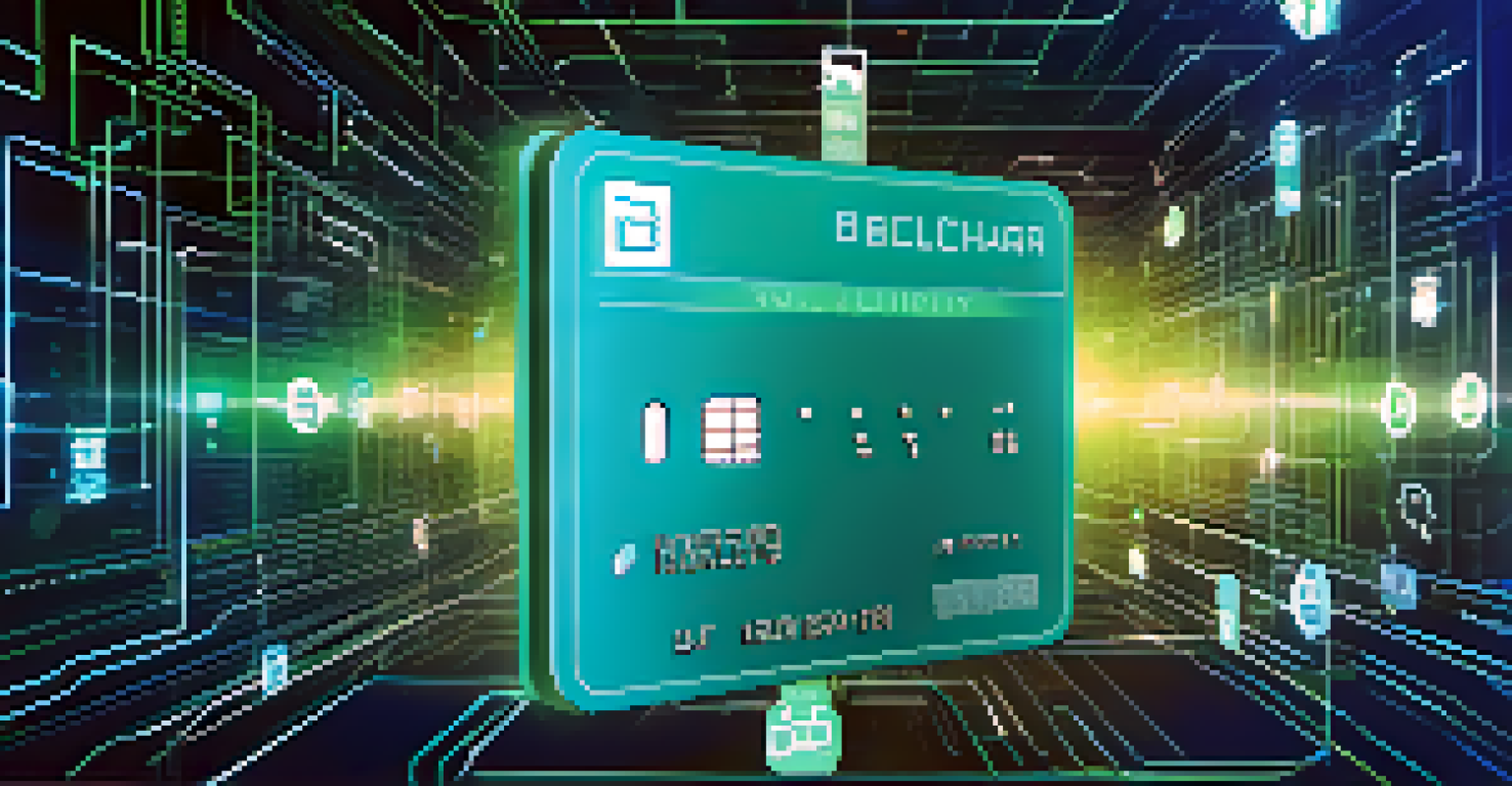Digital Identity: Ethereum Solutions for Refugee Support

Understanding Digital Identity in the Refugee Context
Digital identity refers to the online representation of personal information, which is crucial for individuals, especially refugees, who often lack formal documentation. For many displaced persons, their identity is tied to their physical documents, which can be lost or destroyed during crises. This challenge makes it essential to create a reliable and secure way to establish and maintain identity digitally.
In the digital age, identity is not just a piece of information; it is the very essence of a person's existence and their ability to interact with the world.
In the context of refugees, digital identity can serve as a lifeline, allowing them to access essential services, such as healthcare, education, and employment opportunities. By leveraging technology, we can help ensure that these individuals are not erased from the system, giving them the chance to rebuild their lives. Ethereum, with its decentralized framework, offers innovative solutions to this pressing issue.
Moreover, creating a digital identity for refugees can enhance their safety and privacy, as they can control how their information is shared. This empowers individuals and restores dignity, enabling them to navigate their new environments more effectively. It’s a step towards inclusivity and support for vulnerable populations.
The Role of Ethereum in Digital Identity Solutions
Ethereum is a blockchain platform that enables developers to build decentralized applications (dApps). This technology is particularly significant for refugee identity solutions because it allows for secure and immutable record-keeping. By harnessing the power of blockchain, we can create a system where identities are verified and stored without the risk of tampering or loss.

Using Ethereum, identity verification can be accomplished through smart contracts, which are self-executing contracts with the terms directly written into code. This means that once an identity is established, it can be automatically recognized and validated across various platforms and services. This level of trust and efficiency is a game changer for refugees who often face bureaucratic hurdles.
Digital Identity Empowers Refugees
Creating digital identities helps refugees access essential services and regain control over their personal information.
Additionally, Ethereum’s ability to facilitate tokenization can enable refugees to receive aid and services in a streamlined manner. For instance, they could receive digital tokens that represent their identity and eligibility for assistance, making the process smoother for both them and the organizations providing support.
Case Studies: Successful Implementations of Ethereum Solutions
Several organizations are already leveraging Ethereum to help refugees. For instance, the United Nations High Commissioner for Refugees (UNHCR) has explored blockchain technology to improve the registration and verification process for displaced individuals. This initiative demonstrates how digital identities can be managed more effectively, ensuring that aid reaches those who need it most.
Empowering individuals with secure digital identities is crucial for their inclusion and participation in society, especially for those who have lost everything.
Another compelling example is the use of Ethereum-based systems in refugee camps, where individuals can maintain their digital identities and access services without relying on traditional paperwork. These implementations not only reduce the risk of fraud but also empower refugees to take control of their identities in a challenging environment.
These case studies highlight the potential of Ethereum solutions to create sustainable, long-term benefits for refugees. By providing a secure and efficient means of identity verification, we can help facilitate their integration into society, ultimately fostering greater resilience and independence.
Challenges in Implementing Digital Identity Solutions
Despite the promise of Ethereum solutions for digital identity, several challenges remain. One major hurdle is the digital divide; not all refugees have access to technology or the internet, which can hinder their ability to utilize these solutions. Bridging this gap is essential to ensure that all individuals can benefit from digital identity initiatives.
Additionally, there are concerns regarding security and privacy. While blockchain technology is inherently secure, the management of personal data must be approached with caution to prevent breaches. Ensuring that refugees have control over their information is crucial for maintaining trust in these systems.
Ethereum Enhances Identity Verification
Utilizing Ethereum's blockchain technology enables secure, efficient identity verification for refugees, minimizing bureaucratic obstacles.
Lastly, there is the need for collaboration among various stakeholders, including governments, NGOs, and tech companies. A unified approach is necessary to create frameworks that support the effective implementation of digital identity solutions, ensuring that they are accessible, secure, and beneficial for refugees.
The Importance of Community Involvement
Community involvement plays a vital role in the success of digital identity initiatives. Engaging refugees in the design and implementation process ensures that the solutions developed are tailored to their unique needs and circumstances. This participatory approach fosters a sense of ownership and empowerment among individuals, which is critical for long-term success.
Moreover, local communities can serve as valuable resources for outreach and education, helping to bridge the gap between technology and those who need it most. By involving refugees and community leaders, we can create awareness about the benefits of digital identity solutions, encouraging more individuals to embrace these innovations.
In essence, building a supportive community around digital identity initiatives can amplify their impact. It creates an ecosystem where refugees feel supported, informed, and empowered to navigate their new lives, while also drawing on the strength of their communities.
Future Prospects: Evolving Digital Identity Solutions
The future of digital identity solutions for refugees looks promising, particularly with ongoing advancements in blockchain technology. As Ethereum continues to evolve, we can expect more robust applications that address the specific challenges faced by displaced individuals. This ongoing development can lead to more secure, efficient, and accessible identity verification processes.
Additionally, the integration of artificial intelligence (AI) and machine learning could enhance these solutions by providing personalized assistance and support. These technologies can help identify the needs of refugees more accurately, ensuring that services are tailored to their specific situations. The combination of blockchain and AI could revolutionize the way we approach refugee support.
Community Involvement is Key
Engaging refugees and local communities in digital identity initiatives fosters ownership and ensures solutions meet their unique needs.
As we move forward, it is crucial to focus on inclusivity and collaboration among all stakeholders. By working together, we can harness the full potential of digital identity solutions, ultimately improving the lives of countless refugees and facilitating their integration into society.
Conclusion: Embracing Digital Identity for a Better Future
In conclusion, digital identity solutions powered by Ethereum hold the key to addressing the challenges faced by refugees. By creating secure, decentralized systems for identity verification, we can help restore dignity and agency to individuals who have been uprooted from their homes. This is not just about technology; it's about enabling people to reclaim their identities and futures.
As we continue to explore innovative solutions, it’s essential to prioritize the voices of refugees in the conversation. Their experiences and insights can guide the development of effective initiatives that truly meet their needs. By working together, we can create a world where every individual, regardless of their circumstances, has the opportunity to thrive.

Ultimately, embracing digital identity solutions is a step towards a more inclusive and compassionate society. Let’s champion these initiatives, ensuring that refugees are not left behind but are empowered to build a brighter future for themselves and their families.